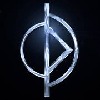HOME | DD
 DeathsProdigy — Pele
DeathsProdigy — Pele

#astrology #avatar #classical #cosmology #elements #esoteric #factors #history #life #numerology #pele #theories #woman
Published: 2015-07-17 09:22:04 +0000 UTC; Views: 1299; Favourites: 3; Downloads: 0
Redirect to original
Description
Fire is one of the four classical elements in ancient Greek philosophy and science. It was commonly associated with the qualities of energy, assertiveness, and passion. In one Greek myth, Prometheus stole fire from the gods to protect the otherwise helpless humans, but was punished for this charity.Fire was one of many archai proposed by the Pre-socratics, most of whom sought to reduce the cosmos, or its creation, by a single substance. Heraclitus (c. 535 BCE – c. 475 BCE) considered fire to be the most fundamental of all elements. He believed fire gave rise to the other three elements: "All things are an interchange for fire, and fire for all things, just like goods for gold and gold for goods."[2] He had a reputation for obscure philosophical principles and for speaking in riddles. He described how fire gave rise to the other elements as the: "upward-downward path", (ὁδὸς ἄνω κάτω),[3] a "hidden harmony" [4] or series of transformations he called the "turnings of fire", (πυρὸς τροπαὶ),[5] first into sea, and half that sea into earth, and half that earth into rarefied air. This is a concept that anticipates both the four classical elements of Empedocles and Aristotle's transmutation of the four elements into one another.
Heraclitus regarded the soul as being a mixture of fire and water, with fire being the more noble part and water the ignoble aspect. He believed the goal of the soul is to be rid of water and become pure fire: the dry soul is the best and it is worldly pleasures that make the soul "moist". He was known as the "weeping philosopher" and died of hydropsy, a swelling due to abnormal accumulation of fluid beneath the skin.
However, Empedocles of Acragas (c. 495 - c. 435 BCE), is best known for having selected all elements as his archai and by the time of Plato (427 - 347 BCE), the four Empedoclian elements were well established. In the Timaeus, Plato's major cosmological dialogue, the Platonic solid he associated with fire was the tetrahedron which is formed from four triangles and contains the least volume with the greatest surface area. This also makes fire the element with the smallest number of sides, and Plato regarded it as appropriate for the heat of fire, which he felt is sharp and stabbing, (like one of the points of a tetrahedron).[8]
Plato’s student Aristotle (384 - 322 BCE) did not maintain his former teacher's geometric view of the elements, but rather preferred a somewhat more naturalistic explanation for the elements based on their traditional qualities. Fire the hot and dry element, like the other elements, was an abstract principle and not identical with the normal solids, liquids and combustion phenomena we experience:
According to Aristotle, the four elements rise or fall toward their natural place in concentric layers surrounding the center of the earth and form the terrestrial or sublunary spheres.[10]
In ancient Greek medicine, each of the four humours became associated with an element. Yellow bile was the humor identified with fire, since both were hot and dry. Other things associated with fire and yellow bile in ancient and medieval medicine included the season of summer, since it increased the qualities of heat and aridity; the choleric temperament (of a person dominated by the yellow bile humour); the masculine; and the eastern point of the compass.
Alchemical symbol for fire
In alchemy the chemical element of sulfur was often associated with fire and its alchemical symbol and its symbol was an upward-pointing triangle. In alchemic tradition, metals are incubated by fire in the womb of the Earth and alchemists only accelerate their development.[1]
Related content
Comments: 3

Thank you very very much 
👍: 0 ⏩: 1


















